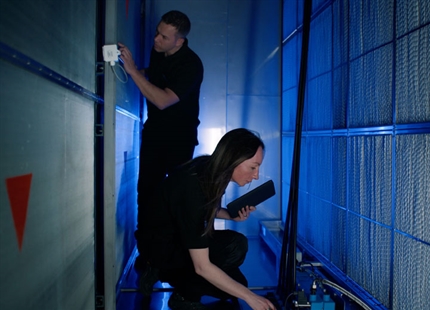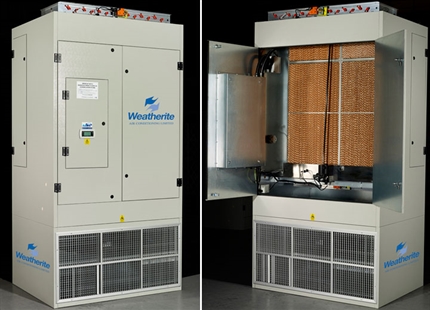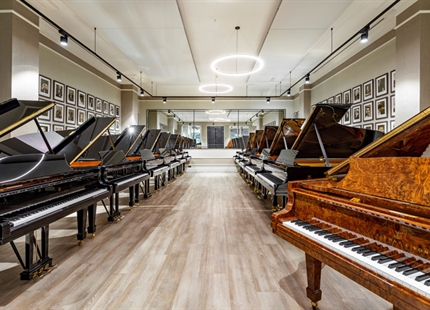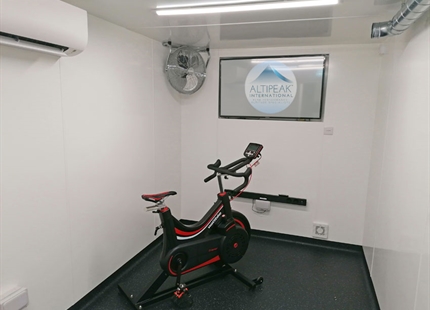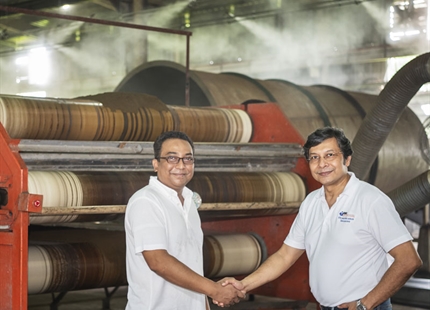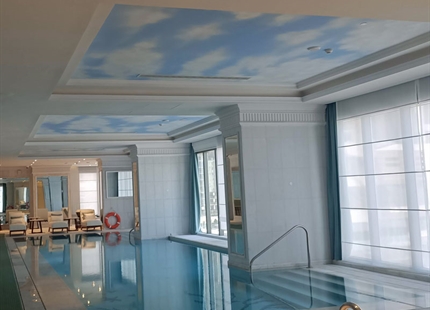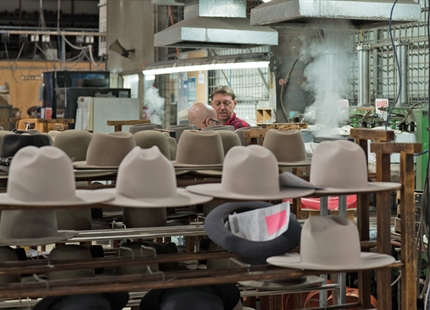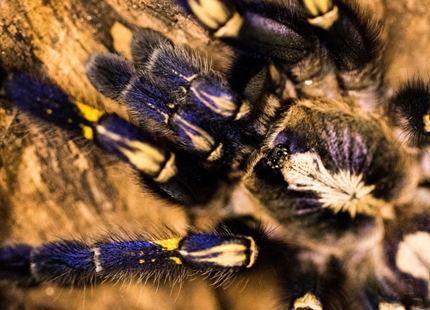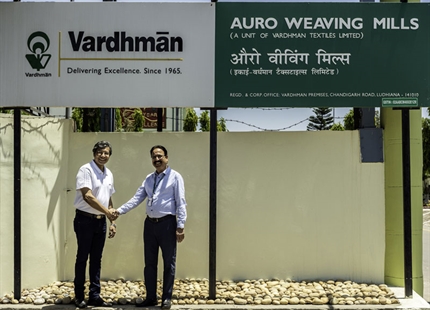21.04.2009
Please breathe responsibly
A wall-mounted humidifier from Condair plc is supplying a gin and tonic mix to the air breathed in by revellers at a London bar. The wall-mounted humidifier is spraying one part Hendrick’s Gin to three parts tonic water into a room decorated like the inside of a cocktail with giant limes, massive straws and a soundtrack by sound artist Douglas Murphy.
The “Alcoholic Architecture” project was created by Bompas & Parr, the same creative team who worked on Heston Blumenthal’s television series Feast. Visitors to the walk-in cocktail cloud are asked to don protective suits, to prevent their clothing from becoming sticky, and can then lounge around in the mist-filled atmosphere consuming the gin and tonic through inhalation. Visitors can stay for up to one hour with three sessions being run each evening from 16th to 18th April and again from the 23rd to the 25th April.
The organisers undertook extensive research into the health and safety implications of breathing alcohol and worked with the University College London Hospital to establish safe levels. Advice was also taken on the potential flammability of the atmosphere from chemical explosive experts.
Sam Bompass, Director at Bompass & Parr, commented, “We are very grateful to Condair plc for all their assistance in helping us turn the initial concept of an alcoholic cloud into a reality. The humidifier has performed exceptionally throughout, which given its unusual application, is a credit to its engineering design.”
The spray humidifier from Condair used to create the intoxicating atmosphere is more commonly employed to create the optimum humidity in manufacturing, agricultural and botanical applications. It is a low energy, cold water spray humidifier that is wall-mounted and releases up to 6.5 litres of moisture per hour.
The humidifier normally incorporates automatic drain down cycles, to prevent the possibility of water stagnation, as well as silver ion dosing and anti-scale filters. However, these safety features were obviously not required by the creators of the alcoholic cloud as it could have meant sending the valuable cocktail to drain rather than into the lungs of the deep breathing patrons.
Tickets to the venue cost £5 each and were quickly sold out across the six days. Interest has been very high in future Alcoholic Architecture projects with enquiries from festival organisers and bars both in the UK and abroad.

